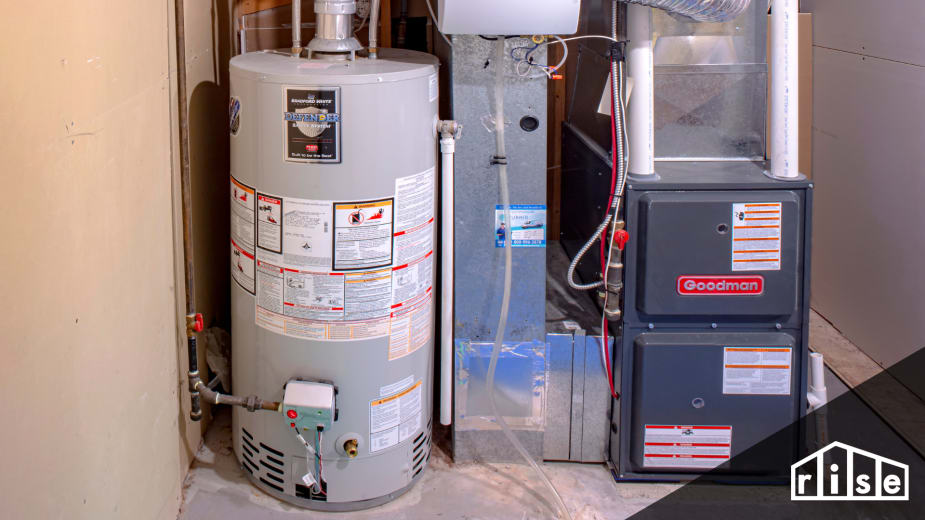Crucial Procedures for Residential Property Owners Dealing with Issues with Faulty Water Heaters
Crucial Procedures for Residential Property Owners Dealing with Issues with Faulty Water Heaters
Blog Article
Just how do you feel when it comes to What Do You Do When Your Water Heater Bursts??

Whether it is located in the cellar or a different space, damaged water heaters can trigger stress and anxiety. A standard system holds 80 gallons, so an overnight leak will result in a flood. This causes significant residential property damages with soaked walls as well as floors. Having no warm water supply is additionally problematic. If you are taking care of these concerns, remember of the following:
Call the Plumber
After doing the initial 2 security steps, you should call your plumber to come right away to deal with a burst water heating unit. There are normally signs that your aging water heating system has sediment accumulation in the interior.
Don't wait on major flooding to call the plumber. By then, you will have to spend more to recover your residential or commercial property. Rather, as soon as you detect these signs, have actually a professional involved examine your hot water heater tank. Commonly, water heaters have a life expectancy of concerning 8 to 12 years. With regular assessment and also maintenance, you can extend its life.
Cut Off the Cold Water Supply
Cut off the storage tanks tap water supply from the resource. This goes from your main water line into the storage tank. When your storage tank remains in good condition, the cold water stops filling up when the container is complete. However since it is dripping, the water will certainly continue to flow. Close the shutoff discovered on top of the heating unit. Revolve this clockwise to close it off. You need to turn off that main water supply line outside your residential or commercial property if you can not find it or reach it.
Turn Off Power Source
Before calling the plumber, turned off a gas hot water heater by turning the temperature level dial. This is usually located at the top of the thermostat. Change off the circuit breaker if you have a design that runs on electrical power. This will certainly avoid electrocution, particularly if there is a leakage as water is a conductor. Usually, the burner turns off when the water strikes a details temperature level. With a busted container, it might malfunction. Cutting it off guarantees you stay safe.
Tidy up Residential property
After calling the plumber, record damages by taking notes and photos so you can declare your home owner's insurance. Remove any standing water to protect against mold and mildew and mildew growth. If you have a completely submersible water pump, utilize that to drain the water.
Bear in mind, if you see any concerns with your water heating unit, call the pros right away. You can not take this problem gently because a damaged thermostat can increase water temperature to a precariously high level, leading to unexpected burns.
After doing the first 2 safety steps, you must call your plumber to come right away to repair a burst water heating system. Instead, as quickly as you identify these signs, have a professional come to evaluate your water heating unit container. Prior to calling the plumber, shut off a gas water heating unit by transforming the temperature level dial. If you have a submersible water pump, utilize that to drain pipes the water. Remember, if you notice any concerns with your water heating unit, call the pros right away.
When You Should Turn off Your Water Heater
When the main water supply is shut off
There are many circumstances in which the main water supply is turned off. When this happens, many homeowners wonder if it’s safe to keep the water heater on of it should be shut down too.
In most cases, it may not be necessary to turn off the water heater, but it also won’t hurt, either. However, there are two reasons when you should turn off the unit to prevent too much pressure or heat from building up inside the tank:
When there’s a leak
If your water heater springs a leak due for a variety of reasons, including age or a valve malfunction, you should always turn off the unit and shut off the water supply until the issue is resolved.
https://www.libertyplumbingheatingandair.com/blog/when-you-should-turn-off-your-water-heater/

We had been guided to that write-up about Water Heater Repair from a good friend on our other domain. Sharing is nice. You won't know, you may be helping someone out. I am grateful for your time. Visit again soon.
Leaks? Contact us! Report this page